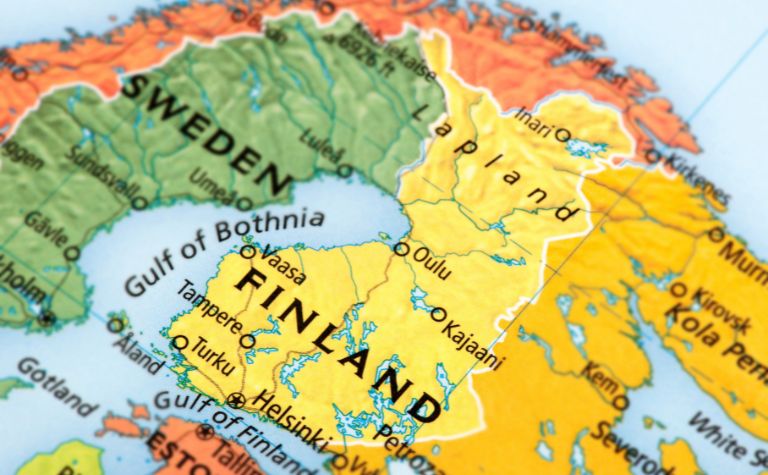Finland is a country in Europe that embraces the Nordic welfare model. The school system is the best in the world, and the country frequently tops the World Happiness Index. [1]
Moving to Finland is a great idea, but it requires careful planning and can be quite difficult.
To move to Finland, individuals must either have an employment contract, university acceptance, or family in the country.
A residence permit is also essential because people cannot stay in the country for more than 90 days without it, and their right to work will be limited.
It is important to note that citizens of EU/EEA countries don’t need residence permits.
They can register their right to reside in Finland at the Immigration Services.
There are some cases where people may be permitted to work without a residence permit, as detailed by the Finnish Immigration Service. [2]
Also, see What Is Finland Known For? to learn more.

What Are the First Steps To Move to Finland?
Moving to Finland is not an easy process. Individuals who wish to immigrate to the country need to have their documents organized well in advance.
They must also have reasons to move – a job, education, or a relative.
The first step in moving to Finland is to study or secure employment in Finland.
Studying in Finland makes it easier to obtain gainful employment in the country and makes it easier to obtain a working visa.
After working for 90 days, individuals can apply for their first residence permit.
There are multiple academic opportunities in Finland, and the most popular courses among students are engineering and natural science-based.
Potential students must secure admission to a university of their choice and prove that they can support themselves financially while they’re studying.
After securing an acceptance from a Finnish university, students can apply for a student residence permit that also allows individuals to work for 30 hours a week for work unrelated to their course. [3]
The student resident permit lasts as long as the length of the course.
The student must have a valid passport for the entire duration.
After completing the course, individuals who want to stay on can apply for a two-year post-study residence permit.
This permit must be applied for within five years of completing the study.
Individuals who prefer to work instead of study must find secure employment, have an employment contract, and apply for a residence permit before moving to Finland.
Alternatively, an entrepreneur permit can be considered, wherein businessmen take their ideas and establish a business in Finland.
To qualify for an entrepreneur permit, individuals must get an eligibility certificate from the Finland Business Bureau and prove that the business will remain solvent and will be economically viable.
Nordic citizens and members of the EU do not need residence permits and can simply move to Finland and work as Finnish citizens.
After securing the first residence permit, individuals may become eligible for an EU permanent residence permit if they’ve lived in Finland for five years continuously.
Apart from entering the country as students or working professionals, individuals may also apply for residence permits if they have family in Finland.
They will need to prove that they and their partner have the means to support themselves.
Also, see What Is There To Do In Finland? to learn more.

What’s Hard About Moving to Finland?
Moving to Finland is not an easy process. In addition to finding a university to study or a job, individuals also need to find housing, learn the language, and adjust to a completely different culture.
There are a lot of difficulties when moving to Finland permanently.
Finding a job is one of the hardest parts of moving to Finland, as individuals will have to compete with competent and qualified Finnish and other Nordic citizens.
Finding housing in Finland is difficult as well, and learning Finnish is challenging but essential for integration.
Potential employers in Finland are not always open to hiring immigrants as they need to prove that hiring a foreign national is necessary.
They must also manage the additional paperwork that comes with hiring an immigrant, so only the most exceptional or necessary immigrants are offered jobs in Finland.
The competition is fierce because citizens of other Nordic countries don’t need a residence permit to work in Finland; they only need to apply for the right to reside. [4]
So employers in Finland can pick from a number of eligible candidates who have the advantage of knowing the language and assimilating better into the culture of the country.
Renting in Finland can be quite expensive, and houses are difficult to find due to the high demand, especially in big cities like Helsinki.
Good job opportunities are only available to Finnish speakers, and the language is not easy to learn.
Finnish is considered one of the hardest languages for English speakers to learn, requiring nearly 2200 hours of study time to grasp. [5]
In addition to all these difficulties, most people find it difficult to adjust to the climate of the country as it is cold, dark, and rainy for most months of the year.
Also, see Sweden vs. Finland: What’s the Difference? to learn more.

Does Finland Welcome Foreigners?
Overall the Finnish tend to be open-minded as a culture and have maintained this attitude towards foreigners and immigrants.
However, attitudes have been changing over the years, and even the Finns are not immune to race-based discrimination,
Finland is open to foreigners, particularly foreigners who integrate well into Finnish society.
The Finnish people can be welcoming but are not effusive people, and this may come across as dismissive.
However, foreigners who have trouble integrating may face some prejudice.
For the most part, the Finnish have a positive perception of foreigners, especially working professionals who are passing through the country. [6]
Individuals who are staying longer do have to work towards integration, and this is easier for people who are from Western countries.
Non-white immigrants sometimes experience discrimination and prejudice that complicates their integration into Finnish society.
This discrimination has been on the rise since the beginning of the 21st century and is particularly evident among young boys in rural regions. [7]
Conclusion
To move to Finland, individuals must find a job, but it is easier to study in Finland first, then apply for a post-study residence permit.
Also, see What Does Finland Give To New Mothers? to learn more.
References:
[1] Source
[2] Source
[3] Source
[4] Source
[5] Source
[6] Source
[7] Source
